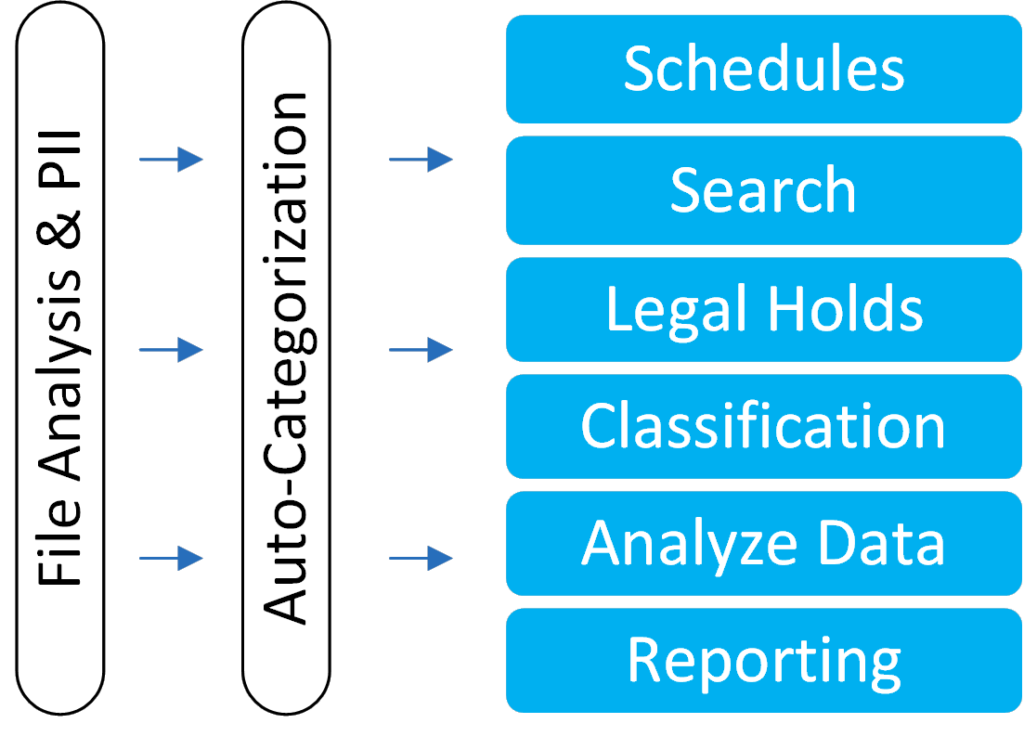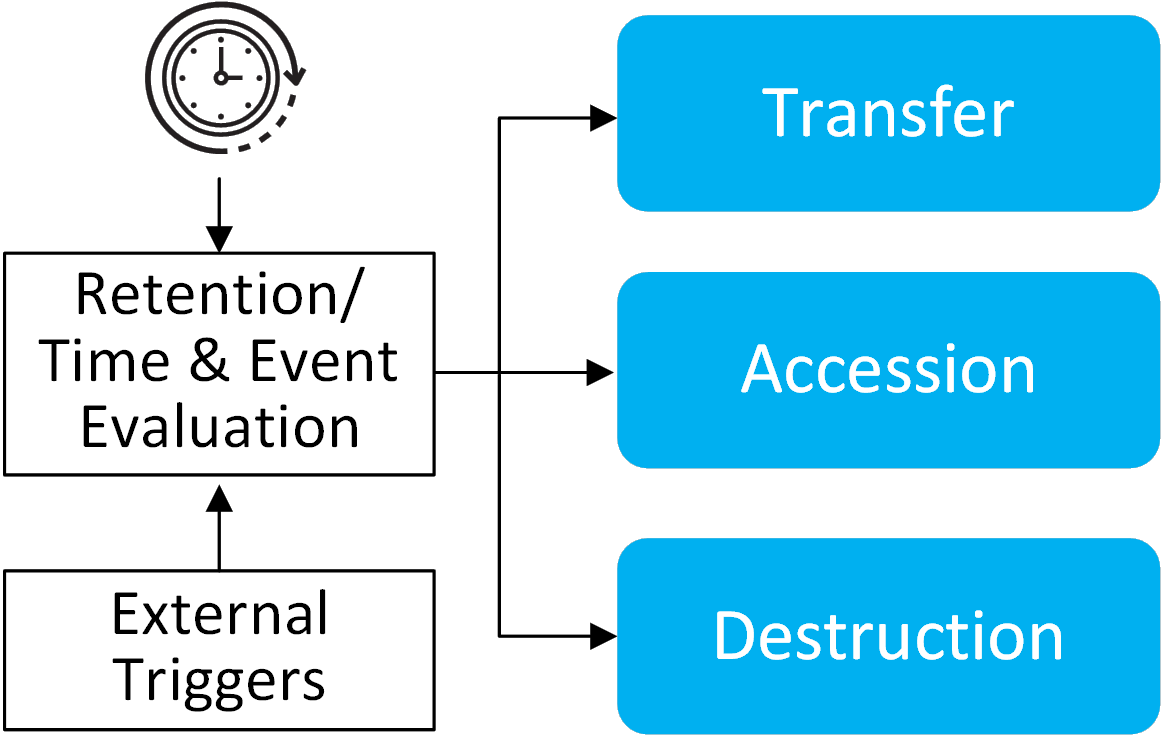- (215) 646-8000
Records Management
Modular tools for transformational IT
01 /
Automatically capture, secure, categorize, manage and destroy your records
Tailor RMA iQ to meet the specific needs of the organization and easily add new capabilities as requirements change
RMA iQ is a complete solution that addresses all phases of the records lifecycle, from capture through final disposition. The software offers a feature-rich interface and flexible deployment options that make it easy to use and administer.
RMA iQ automatically captures documents into the central repository as users create them. It uses synchronization and integration methods such as RESTful APIs to connect to and migrate documents and content from email, file shares, SharePoint, Microsoft Teams, and Oracle databases.
Feith captures and ingests both the records and any metadata and index values held in organizational databases, file systems, legacy data stores, and custom repositories. Index values help the system find, organize, control, and workflow documents stored in the repository.
RMA iQ helps to ensure that organizations comply with laws and regulations. The solution’s capabilities align with NARA’s Universal ERM lifecycle of electronic records management, including Capture, Maintenance and Use, Disposal, Transfer, Metadata, and Reporting.
RMA iQ can query and retrieve records regardless of the record’s location. With Feith’s full-text search capabilities, staff will be able to find important documents by searching for indexing fields or exact words and phrases in the text. Users can also save common search criteria for later.
In Feith, a record’s categorization is based on its structured (metadata) and unstructured (full-text) content. Within Feith’s RMA iQ solution, declaration and categorization may occur along a level-of-difficulty spectrum ranging from automatic to manual.
RMA iQ enables organizations to upload their retention schedules and the NARA machine-readable Comprehensive Records Schedule. Once uploaded, staff can develop and tune the rules to determine the retention period per category.
Feith ensures a detailed, complete, and secure audit trail – a log of all user and system activities within RMA iQ. All record changes, deletions, tasks, redactions, and workflows in Feith are provably auditable in a secure repository.
The work that records managers complete must be entirely defensible. There needs to be a visual tally of every action throughout the lifecycle of a record. At every step, Feith ensures a detailed, complete, and secure audit trail.
02 /
Leaders in Federal Records
Feith Systems and Software Inc. is a small business with a core mission to accelerate IT modernization for the U.S. Federal Government.
RMA IQ provides the modern technology needed to comply with the Federal Records Act and NARA UERM in today’s agency; ensuring both electronic and physical records are automatically acquired, administered, and disposed according to your agency’s requirements.
“A fully integrated, fully automated, and cost savings records management solution that fosters rapid information sharing across [the agency].”
↳ Honorable Dana Deasey, Chief Information Officer, Department of Defense
03 /
Your security-first centralized archive and automation platform


RMA iQ provides accessible user interfaces for file plan administration, file sync and sharing, custom reports, and workflow. Using these tools, System Administrators, records managers, and knowledge workers can add, search for, view, index, annotate, declare, categorize, route, redact, print, and dispose of documents.
RMA iQ provides organizations with the following benefits: